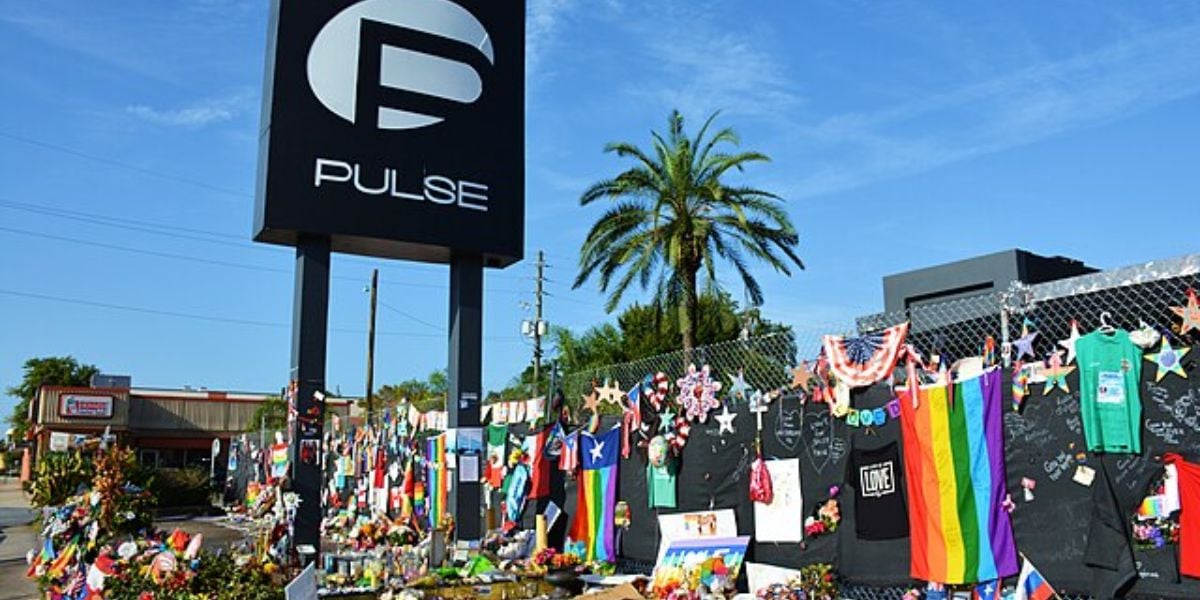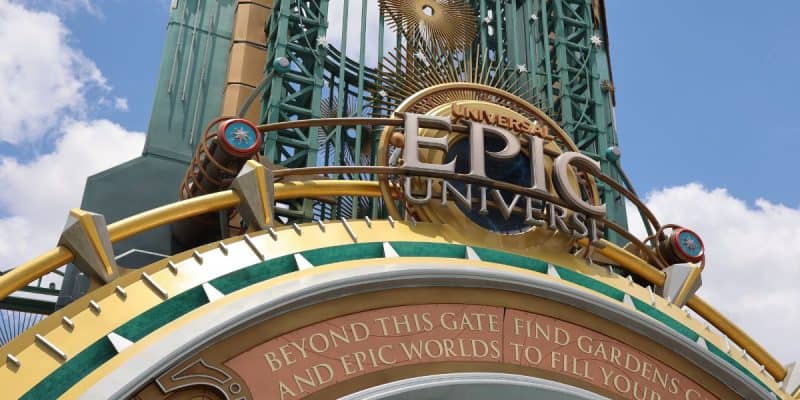Amid an ongoing legal battle over painting public pavement in Florida, several roadways leading to Universal Orlando Resort may now be illegal. Here’s what we know.
Last month, Florida Governor Ron DeSantis sparked widespread backlash after crews painted over a rainbow crosswalk crossing Esther Street along Orange Avenue in Orlando. The painted roadway was a memorial to the 49 (overwhelmingly LGBTQIA+) victims of the 2016 mass shooting at Pulse nightclub.

Outraged, local residents originally re-colored the crosswalk with rainbow sidewalk chalk. When the Florida Department of Transportation (FDOT) washed that away, activists returned with paint. Soon, FDOT installed a sign warning pedestrians not to block traffic or tamper with the public walkway.
In the weeks since, FDOT has repainted modified crosswalks and other roadways throughout Florida, angering parents, students, artists, and activists, many of whom raised money to complete the projects near their schools, workplaces, or cultural centers. Governor DeSantis cited SB 1662, which went into effect on July 1, as the reason for the changes, and claimed the FDOT’s work at the Pulse memorial had nothing to do with anti-LBGTQIA+ sentiment.
“The Florida Legislature passed a law that was very clear, that I signed into law: We’re not doing the commandeering of the roads to put up messaging,” DeSantis said.

But Florida State Senator Carlos Guillermo Smith, D-Orlando, who voted for SB 1662, said it didn’t mention repainting public crosswalks. He believes DeSantis, who always had the authority under FDOT to enforce roadway conformity, is using the new bill as an excuse for removing the Pulse memorial.
“[DeSantis] was not required to do this,” Sen. Smith said to the Tallahassee Democrat. “He was not enforcing a new law… The law has generally required uniformity in crosswalks – with FDOT exceptions – since the ’70s. … He invented an excuse to punish LGBT visibility and draw attention to himself, and now it’s costing taxpayers millions.”

Cosmetic roadway changes near Universal Orlando Resort could be the next target of the FDOT crackdown. In these photos from X (formerly known as Twitter) user @bioreconstruct, swirl patterns and bar patterns are visible on roadways to the Central Florida Universal parks that are owned and maintained by the City of Orlando:
Seems like pavement near Universal Orlando is now illegal due to recent changes in Florida law.
• There are 3 intersections with swirl patterns.
• Also 4 roads with bar patterns.
• Streets are owned/maintained by the City of Orlando.
It’s unclear whether FDOT or Governor DeSantis will make changes to the roadways near Universal Studios Florida, Universal CityWalk, Universal Islands of Adventure, Universal Epic Universe, and Volcano Bay.

It wouldn’t be the first time the Florida governor battled with a theme park–beginning in 2022, DeSantis embarked on a years-long legal battle against Walt Disney World Resort after then-Disney CEO Bob Chapek publicly slammed the Parental Rights in Education Act, colloquially known as the “Don’t Say Gay” law. Disney ultimately lost a legal battle against DeSantis and forfeited control over the Reedy Creek Improvement District to the government-appointed Central Florida Tourism Oversight District board.
What do you think of the ongoing controversy about painting public pavement in Florida? Inside the Magic would love to hear from you in the comments!
